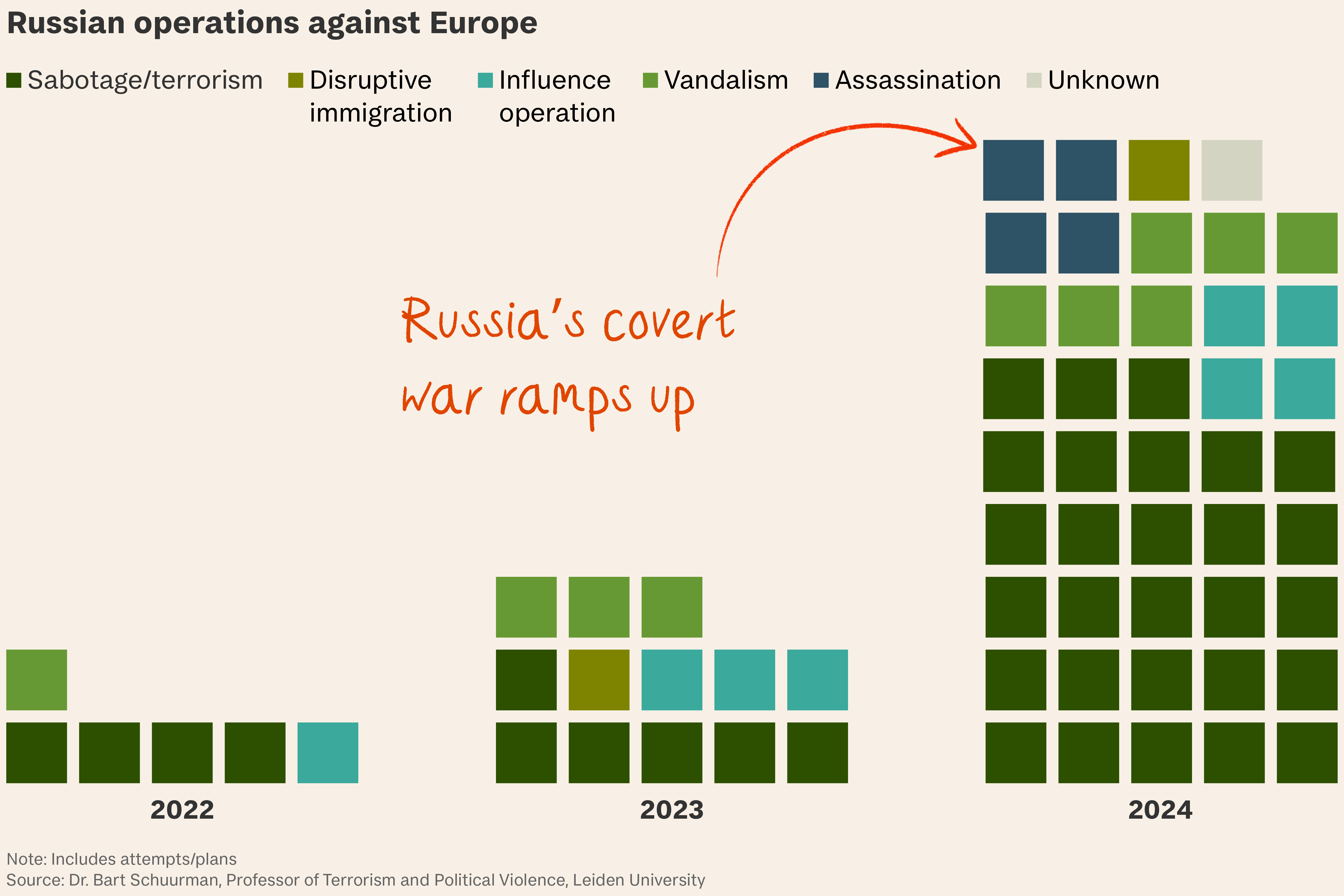
VW is a microcosm of what ails European manufacturing
Volkswagen executives have announced plans to close some of their German factories for the first time since the company’s founding in 1937.
So what? Upstart Chinese manufacturers have stolen a march on the European car industry, churning out cheap EVs, securing supply chains and munching market share. Legacy carmakers are reeling and VW – which needs to save €10 billion in costs over the next three years and is wrestling with red tape – is a case in point.
But it’s not the only one trying to ride out a chill in sales across Europe. In recent weeks
- BMW recalled 1.5 million vehicles with potentially faulty braking systems;
- Volvo u-turned on its goal of selling only electric vehicles by 2030; and
- Northvolt, the Swedish battery startup, announced job cuts and a plan to sell off its energy storage business.
Gear shift. Ordinarily automakers would respond to a dip in unit sales (down 13 per cent since pre-Covid) by squeezing margins on cheaper models. But Chinese firms have marched into that sector of the market by aggressively investing in R&D and controlling raw materials, especially copper. Incumbents like VW have been forced into a defensive crouch, cutting costs as they hope for a pick up in demand for cleaner cars.
The People’s carmaker. “There are no more checks coming from China,” CEO Oliver Blume told 25,000 workers at VW’s Wolfsburg headquarters, alluding to a 50 per cent slump in profits from what has become the company’s biggest overseas market. “It’s not to do with our product or poor performance. The market is simply not there any more.”
Blume’s announcement was met with shouts of “we are Volkswagen, you are not”. Daniela Cavallo, head of the powerful works council representing the company’s 120,000 employees, responded that there would be “bitter resistance” to job cuts, raising the spectre of strikes, or even a move to a four-day week.
Who’s driving? VW’s unique governance structure has drawn criticism from investors for years.
- The clans. Most of the group’s equity is owned by Porsche SE, the investment vehicle of the Porsche and Piech families, holding a 31.9 per cent stake.
- The workers. But under Volkswagen law, 20 per cent of voting shares are controlled by the German state of Lower Saxony, where five of VW’s plants are located. This translates into ten board seats which can act as a blocking veto on any decisions about factories.
Previous restructure attempts have ended badly. Herbet Deiss, who took over in the wake of the diesel emissions scandal, was ousted for simply questioning workforce size. “The VW problem is that . . . you’re in a situation where you can’t change anything. It’s like a state-owned company,” says Ferdinand Dudenhöffer from the University of Duisburg-Essen.
VW coughs, Germany sneezes… The hard-right AfD’s recent success in regional elections has left centrists wary of damage done by deindustrialisation. Deputy chancellor Robert Habeck has told VW it “bears a great deal of responsibility” for the country’s industrial future, “and it should stay that way.”
…and Europe catches a sniffle? The catch-22 facing EU lawmakers is whether to compete with or protect against China’s EV avalanche. VW has actually opposed the bloc’s decision to raise new tariffs on imported EVs, partly because of fear of retaliation and partly because some of its brands sold in Europe, such as the Cupra, are made in China. Germany now looks set to line up behind Spain in opposing the raised duties.
A report on European competitiveness released this week by Mario Draghi, the former Italian prime minister notes that “software and electronics are set to account for up to 50 per cent of a vehicle’s value by 2030” and that firms must develop the digital side of car making to remain competitive.
What’s more… Chinese automakers like BYD are spending between 7 to 11 per cent of their revenue on R&D. If it can’t keep up, Volkswagen’s claim to be ‘Das Auto’ will disappear fast in the rear view mirror.












